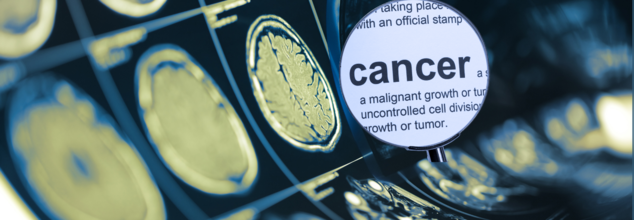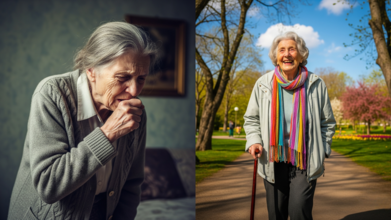- Health Conditions A-Z
- Health & Wellness
- Nutrition
- Fitness
- Health News
- Ayurveda
- Videos
- Medicine A-Z
- Parenting
- Web Stories
Cancer Before Age 50 Is On The Rise, New Study Lists Which Types

Cancer is often seen as a disease that primarily affects older individuals. After all, the average age of diagnosis is 66, and the risk of developing cancer rises steadily with age. However, a disturbing trend is emerging: more young adults are being diagnosed with cancer before the age of 50. This article explores this shift, its potential causes, and the types of cancers that are rising in younger populations.
In the United States, cancer is diagnosed in fewer than 25 out of every 100,000 people under the age of 20, and it accounts for just 1 percent of all cancer diagnoses, according to the National Cancer Institute (NCI). By the time individuals reach the ages of 45 to 49, the incidence of cancer jumps to about 350 cases per 100,000 people. This rate almost triples to 1,000 cases per 100,000 in people 60 and above. Nevertheless, researchers now notice a concerning trend—a rise in the number of cancer cases being diagnosed in young adults, especially those below 50.
A new research by the NCI shows an in-depth analysis of early-onset cancers in the US. The research, which spanned over 2 million cases diagnosed between 2010 and 2019, revealed substantial increases in certain forms of cancer among younger individuals. Breast, colorectal, kidney, and uterine cancers were identified as the top drivers of this increase. Of the 33 cancers examined, 14 had increasing rates in at least one younger age group, with 63% of these early-onset cancers being in women.
The NCI's report compared cancer incidence in 2019 with what could have been anticipated from the rates in 2010. The results are worrisome:
Breast Cancer: The biggest proportion of the increase was seen in breast cancer, with approximately 4,800 extra cases in young adults compared to what could have been anticipated.
Colorectal Cancer: There were 2,000 more than anticipated cases of colorectal cancer.
Kidney Cancer: 1,800 more cases of kidney cancer were diagnosed.
Uterine Cancer: Uterine cancer diagnoses went up by 1,200 cases.
Interestingly, even as the diagnosis is on the increase, the mortality rates for the majority of cancers among young people have not actually increased. There were, however, sharp increases in the mortality rates for colorectal, uterine, and testicular cancers among the young population.
Why Is This Happening?
The causes of this rise in early-onset cancer are multifaceted and complex. Although more study is required, a number of theories have been put forward by specialists in the field:
Obesity: Obesity has been associated with a heightened risk of various cancers, including uterine and colorectal cancers, for many years. As obesity continues to increase, it could account for some of the rises in cancer diagnoses among young individuals.
Advances in Detection of Cancer: Enhanced screening techniques and shifts in guidelines for early detection may be contributing. These advances have resulted in increasing numbers of cancers being detected at an earlier stage, which may be contributing to the increase in diagnoses.
Delayed Childbearing: For women, delayed childbearing is linked with an increased risk of breast cancer. Pregnancy and lactation have been shown to decrease the risk of breast cancer, therefore delayed pregnancies might be adding to the increase in cases among younger women.
Environmental and Lifestyle Factors: Greater exposure to carcinogens, either through pollution, chemicals, or lifestyle choices, may also be affecting cancer rates among young people.
What Kinds of Cancer Are Increasing?
While the rate of cancer for some cancers in older individuals is decreasing, young people are experiencing more cases of certain cancers. The greatest increases have been seen in the following:
Breast Cancer
This cancer is among the most prevalent cancers of younger women, especially those under the age of 50. A concerning trend that has been seen is an increase in more aggressive subtypes of breast cancer, including triple-negative and HER2-positive breast cancers. These cancers are harder to treat and have poorer prognoses.
Colorectal Cancer
Previously viewed as a disease of predominantly older individuals, colorectal cancer is becoming more prevalent among young people. Early-onset colorectal cancer is specifically of concern because it is often diagnosed at later stages when it is more difficult to treat.
Uterine Cancer
This form of cancer is increasingly found in younger women. Similar to colorectal cancer, the increasing uterine cancer may be a result of the escalating obesity epidemic.
Kidney Cancer
Kidney cancer diagnoses have similarly increased in young adults. While the causes of this are unknown, it is believed that obesity and other lifestyle-related issues may be to blame.
Are Some Cancers Are Decreasing Too?
While there has been an increase in early-onset cancers, it must be added that cancer incidence is falling for various forms in younger age groups. The most significant falls have been observed in lung cancer and prostate cancer.
Lung Cancer: The decrease in lung cancer is, in large part, due to the substantial reduction in cigarette smoking prevalence during the last decades. This has resulted in a commensurate reduction in the incidence of young adults with lung cancer.
Prostate Cancer: The reduction in prostate cancer incidence can be attributed to revised screening recommendations that discourage the routine use of prostate-specific antigen (PSA) testing in young men. This has lowered the rate of unnecessary diagnoses and treatments.
How Are Early-Onset Cancers Different?
The most glaring distinction between early-onset cancers and those that are diagnosed later in life is age. Yet, the aggressiveness of some cancers, particularly breast cancer, is a major consideration. Younger patients tend to have more aggressive types of cancer, which tend to be treated with more aggressive and invasive therapies.
In breast cancer, for instance, younger women will tend to carry genetically caused cancers, like the ones related to BRCA mutation. But again, these genes only explain only 20% of early-onset breast cancer, which points to other genetic or environmental exposures as well.
Can Early-Onset Cancer Be Prevented?
Although it is not possible for anybody to avoid the risk of cancer entirely, some lifestyle choices will minimize the chance of cancer occurrence. According to experts, they include the following:
- Physical activity can lower the risk of developing many cancers, including breast and colon cancer.
- A balanced diet with plenty of fruits, vegetables, and whole grains can reduce the risk of cancer. Reducing processed foods and alcohol consumption is also helpful.
- Smoking is a major cause of cancer, especially lung cancer. Stopping smoking at any age can lower the risk substantially.
- If there is a family history of cancer, it is critical to bring this up with your physician. Genetic counseling and ongoing screening may help detect cancers at an earlier stage, when they are more treatable.
- Early awareness of cancer signs and symptoms is key. Regular check-ups and screenings, like mammograms and colonoscopies, can detect cancers before they become problematic, enhancing the potential for effective treatment.
Although the increase in early-onset cancers is distressing, it is also an urgent call for more research. Researchers need to work towards establishing the root cause of this surge, especially for cancers such as breast, colorectal, and uterine cancers. Through the discovery of the drivers behind these trends, we can then create better prevention methods and treatment options, improving the prognosis of younger cancer patients.
The growing number of cancers occurring before the age of 50 is an important public health issue that must be addressed now. Although certain cancers are decreasing, others are increasing, and it is imperative to keep monitoring and studying these trends to promote a healthier tomorrow for everyone.
What Is The Difference Between Life Expectancy And Healthy Life Expectancy?

‘How long do you think you will live?’, ‘Me? I’ll live till I’m 100 years old!’ As kids these answers were acceptable, full of life and energy, we believed that living till we are 100 was something that can be done. But as we age, we realize, not only is it a pipedream, but life stressors like food, cost of living and how healthy we actually are, can make 100 years sound like hell. Living a long life, like 80 or 70 years old is seen as a reasonable, achievable dream in comparison.
However, the reality of it is much more different than that. You are not being given a choice for a long life, you are paying for a long life with your health. So, if you were to be given a choice, it would be more like, live a perfectly healthy life till 50 or live a long life at the cost of it.
So, when we focus on our health, what should we aim for, long-term healthy years or longer years lived?
What is The Difference Between Life Expectancy And Healthy Life Expectancy?
According to the Royal Borough of Greenwich UK, Life Expectancy (at birth) is the average number of years a person is expected to live in a specific area, based on current death rates. It's a key statistic used to understand the overall health and well-being of a population.
The Life Expectancy gap measures the difference in this number. It can compare life expectancy between men and women or between different geographical areas, like towns or neighborhoods.
On the other hand, Healthy Life Expectancy (at birth) is a more specific measurement. It's the average number of years a person is expected to live in good health, without illness or disability, based on current health and death rates in a particular area.
Have We Been Living Healthier Or Longer?
According to Gov UK, Since the early 2000s, life expectancy has increased more than healthy life expectancy. This means the number of years people spend in poor health has also slightly increased. For example, men now live about 16.1 years in poor health, and women live about 19 years in poor health.
While women still live longer than men, the gap is getting smaller. The difference is now only 3.6 years. However, most of those extra years for women are spent in poor health. Women live 3.6 years longer than men, but they only have 0.7 years more in good health.
Do Older Adults Have Less Healthy Life Expectancy?
The same trend applies to people over 65. They are living longer, but they are also spending more of their later years in poor health. For instance, a 65-year-old man can expect to live an additional 18.8 years, but 8.2 of those years may be in poor health. For a 65-year-old woman, the numbers are 21.2 and 9.9 years, respectively.
This shows that while we're beating old age, we're not always beating the illnesses that come with it. The data suggests we are spending a smaller percentage of our early lives in poor health, but a larger percentage of our later years.
Can We Increase Our Healthy Life Expectancy?
According to the National Institute of Health, genes account for less than a third of your chance of living to age 85. The biggest factor is your behavior and lifestyle. By making healthy choices, most people have the potential to live to a very old age.
Living a healthy lifestyle has a huge impact on your well-being, especially as you get older. A long-term study of a religious group known for healthy living found that they live nearly 10 years longer on average than most Americans. Their secrets? Regular exercise, a vegetarian diet, avoiding tobacco and alcohol, and maintaining a healthy weight.
Experts agree that if you could only do one thing to live longer and healthier, it would be to exercise. Physical activity is crucial for staying active and avoiding disease and disability. Even small amounts of physical activity can help older adults. A study of adults aged 70 to 89 found that those who followed a moderate exercise program had fewer disabilities and recovered faster. A mix of walking, strength training, and balance exercises is especially effective.
Be skeptical of "anti-aging" products or quick fixes. The best and most proven path to a long and healthy life is through common sense habits and an active, engaged lifestyle.
Why Do I Keep Having Stressful Dreams About School? What Do These Recurring Dreams Mean?

It's a simple Monday morning, the sun’s up bright and early, the weather is pleasant, but the anxiety strikes me as soon as I open my eyes. It's the dreaded 10th grade Math exam, the one subject I never excelled at. As if it wasn’t enough that the exam could make or break whether I get enough overall grade to get into my dream schools, if I were to get a bad score on this, it would be a permanent mark on my record.
“I had studied enough, I can do this” I told myself, but what was the point my admit card was nowhere to be found. I searched high and low, my anxiety peaking with every passing minute. “I thought I got up in time? Why am I late, they’ll never let me into the exam hall” I could hear my heartbeat in my ears and it’s getting louder, louder and louder, until it's just a loud long noise. Next thing I know, I’m on my bed, I graduated 10th grade years ago and this was a dream.
What Do Stressful Dreams About School Say About You?
If it isn’t your school exam, then maybe your college entrance exam or perhaps a qualifying exam that could determine whether you get your dream job or not. Recurring dreams about school happen to a lot of us.
These dreams are very common. Experts suggest that they often appear when a person is feeling anxious in their waking life, especially about being evaluated or judged by a boss or another authority figure. These dreams can take many forms: a person might oversleep for an exam, be unable to find their classroom, study the wrong subject, or even show up to school without clothes. The dreams revisit a place where we first experienced success or failure based on our performance.
To understand this, one must know that dreams are a way for the mind to process memories and experiences, both conscious and unconscious. The school setting in these dreams is a stand-in for a feeling of being tested in life and worrying about not meeting other people’s expectations.
Why School is the Go-To Setting
The reason school so often appears as the setting for these anxiety dreams is because it’s where we first learn how to deal with life. Feelings of stress, inadequacy, and embarrassment often happen first in a school environment. These early experiences create foundational beliefs in our unconscious mind about how we handle pressure. For some people, these beliefs can be very hard to change, causing feelings of stress and worry to resurface years later in dreams, even if the beliefs aren't relevant to their adult life.
What Do Recurring Dreams Reveal About Us?
According to the Sleep Foundation, having a recurring dream—the same dream happening again and again—is a sign of an unresolved problem or a difficult emotion in a person’s life. These dreams may be a way for the mind to make sense of past experiences, or they might be a sort of practice run to help a person prepare for a threat or challenge they're facing in real life. The dreams are often a way for the mind to push a person to finally face and deal with a problem.
Another reason for a recurring dream is that it represents a basic psychological need that isn't being met. Experts say everyone needs to feel independent, feel capable, and feel connected to others. Some research has found that people who lack these feelings are more likely to have recurring nightmares with negative themes, such as failing, falling, or being attacked.
Can You Stop Recurring Dreams?
If you're bothered by having the same dream over and over, you can take some steps to try and make them stop. Experts recommend a few different approaches
- Address the root problem. If you can figure out what emotional problems or difficult feelings are causing your dreams, working through them may help the dreams stop.
- Consider therapy. A specific type of therapy called imagery rehearsal therapy is often recommended. With a therapist's guidance, you can practice reimagining the dream with a more positive ending.
- Reduce stress. Since negative recurring dreams are often linked to stress, finding ways to lower your stress levels may also help reduce the dreams.
- Prioritize mental health. People with mental health conditions like depression often have more negative recurring dreams. Treating these conditions can help reduce the frequency of bad dreams.
- Adopt healthy sleep habits. To get a better night's sleep, try to go to bed and wake up at the same time every day. It’s also a good idea to avoid caffeine, alcohol, nicotine, and fatty foods close to bedtime.
- Talk to your doctor about your medications. Some medications, including melatonin, can cause nightmares. Your doctor can advise you on whether changing the dose or stopping the medication might help.
- Treat sleep disorders. If you have a condition like insomnia or sleep apnea, getting treatment for it could help reduce how often you have negative recurring dreams.
Diagnostic Anomaly: Rare Condition Makes This Teen Remembers Everything: She Has Access To Memories That Many Others Don't

At least once in our lives, most of us have dreamed of having a perfect memory. A brain that would remember crucial details at the nick of time, whether it is during your exam or an interview. But this is not just a dream, it is just another day for this young girl, who has a ‘Super Brain’.
Scientifically speaking, she has a very rare condition that makes her remember every detail of her life, like a record. In a 2024 interview by Official W5, Emily Nash, who was 18-year-old at the time of filming, from Ottawa, described her incredible ability to remember everything.
A Person Who Remembers Everything
The video explained how she is one of the few people in the world confirmed to have Highly Superior Autobiographical Memory (HSAM) She can remember the exact date and details of public events, from the death of Queen Elizabeth to celebrity news and movie release dates. Her memory is so precise that she can tell you what she was doing on a specific date, down to what she had for lunch and what was playing on the radio.
Her family even gave her the nickname "Wikipedia" because she was their go-to source for random facts and dates. Emily describes her memory as a "calendar" where each day is like a little movie she can rewind and fast-forward through.
How Is HSAM Different From Having Good Memory?
According to a 2024 study by Neuropsychology Review, HSAM is a very rare and special ability where a person can remember almost every single day of their life in incredible detail. If you give them a specific date, like "January 15, 2003," they can instantly recall what they were doing, what the weather was like, and even what they were wearing. Unlike memory athletes who use tricks to memorize things, people with HSAM do this automatically and without any effort. It feels like a movie playing in their mind. The review confirmed that HSAM is a truly unique type of memory.
It's Fast and Accurate
People with HSAM can recall memories quickly, with amazing detail, and the memories are almost always perfectly accurate.
It Doesn't Fade with Age
A person with HSAM who was studied at ages 75 and 80 still had an incredible memory, showing that this ability seems to resist the normal memory loss that comes with getting older.
It's Only for Personal Memories
The study found that people with HSAM are not better at remembering just anything. They are not smarter, and their memory for general facts, names, or things they learned in a textbook is normal—only their memory for their own life is special.
How Do People With HSAM Remember Everything?
The study explained what goes on inside the brains of people with HSAM.
Brain Activity
When people with HSAM recall a memory, their brain activity goes into overdrive. Areas that are normally used for memory light up much more intensely. This suggests that their memories are more vivid and that the brain's "memory network" is working at a much higher level.
Brain Structure
Interestingly, the physical structure of their brains doesn't appear to be bigger or different in size. Instead, the main difference is in the way certain brain regions are connected, particularly the hippocampus, which is a key part of the brain for memory. This suggests that the special memory isn't because of a bigger brain but because the brain's connections are wired differently.
How Does Researching HSAM Help Brain Health?
Understanding HSAM could be incredibly important for the future. By figuring out how these rare individuals remember so well, scientists might be able to develop new strategies to help people with memory problems, such as those caused by diseases like Alzheimer's. It could also help improve the accuracy of eyewitness testimony in legal cases. Ultimately, this research gives us a unique window into how memory works and how it might be strengthened.
© 2024 Bennett, Coleman & Company Limited

